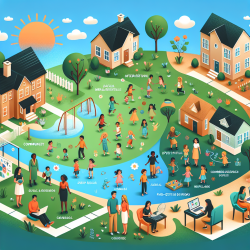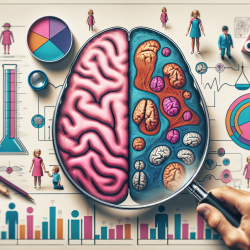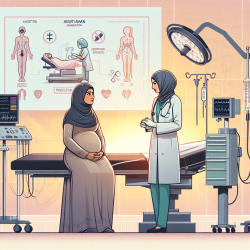Introduction
Disasters, whether natural or man-made, leave profound impacts on communities, challenging the resilience of individuals and systems. The research article "Lessons learned about psychosocial responses to disaster and mass trauma: an international perspective" provides a comprehensive analysis of global disaster responses, offering invaluable insights for practitioners seeking to enhance their skills and improve psychosocial interventions.
Key Lessons for Practitioners
The article emphasizes several critical lessons learned from various international disaster responses, each offering a unique perspective on effective psychosocial care. Here are some key takeaways for practitioners:
- Tailor Responses to Specific Disasters: Each disaster presents unique challenges and requires a tailored approach. Practitioners should adapt interventions to the specific context, considering the type of disaster, its scope, and the affected population.
- Provide Multi-Dimensional Care: Effective psychosocial responses involve a range of interventions, from low-intensity support to specialized treatments. Practitioners should be prepared to offer diverse services that address the varying needs of survivors over time.
- Target At-Risk Groups: Identifying and prioritizing support for at-risk groups is crucial. Practitioners should focus on direct survivors and those with heightened vulnerability, ensuring they receive timely and appropriate care.
- Address Barriers to Access: Disasters often exacerbate barriers to mental health care. Practitioners should proactively work to remove these obstacles, ensuring that all affected individuals can access necessary services.
- Recognize Social Dimensions of Resilience: Social support and community networks play a vital role in recovery. Practitioners should leverage these resources, fostering community-based initiatives that enhance resilience and recovery.
- Expand Roles for Mental Health Professionals: Beyond traditional therapeutic roles, mental health professionals can contribute to disaster preparedness, advocacy, and public health messaging, enhancing overall response effectiveness.
- Coordinate and Integrate Services: Efficient coordination among agencies and integration of services are essential for a cohesive response. Practitioners should collaborate across sectors, ensuring seamless service delivery.
- Incorporate Research and Evaluation: Ongoing research and evaluation are critical for refining disaster response strategies. Practitioners should engage in continuous learning, integrating evidence-based practices into their work.
Encouraging Further Research
While significant progress has been made in understanding psychosocial responses to disasters, there remains a need for further research. Practitioners are encouraged to delve deeper into the following areas:
- Developing frameworks for implementing psychosocial interventions in diverse contexts.
- Evaluating the effectiveness of low- and medium-intensity interventions in non-disaster settings.
- Exploring the role of genetic and environmental factors in individual responses to trauma.
- Investigating the long-term impacts of disasters on mental health and community resilience.
Conclusion
By integrating the lessons learned from global disaster responses, practitioners can enhance their skills and improve the effectiveness of psychosocial interventions. Embracing a comprehensive, research-informed approach will not only benefit individual practitioners but also strengthen the overall capacity of communities to withstand and recover from future disasters.
To read the original research paper, please follow this link: Lessons learned about psychosocial responses to disaster and mass trauma: an international perspective.










